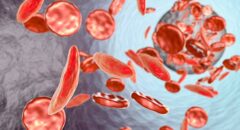Andre Harris: My name is Andre Harris. We are in Houston, Texas where the men living with Sickle Cell town hall meeting is.
Well, my connection with Sickle Cell Disease is first that I am a Sickle Cell patient and also I am an advocate for Sickle Cell Disease. And so this is very important to me because I am a patient and a male so I identify with all of the areas that we're talking about today.
Yes, so black men. Already dealing with a lot of stigmas, first being black and secondly being male. And if you add the disease of Sickle Cell disease are ready at a triple threat. And so there's been a lot of things in our culture that has taught people. To hold certain prejudices against black men. And so I am elated that we're here working with. This company to make sure that we address those stigmas and those attitudes. And that black men are not super predators. They're not thugs and they're not drug seekers.
So with the emergency room setting and a male Sickle Cell patient, they again have to face the issues with doctors and nurses and providers that may not be educated about their disease. So the prejudices that have been passed down for generations that Sickle Cell patients are drug-seeking and that they are drugs really prevents them from receiving the best care possible.
I would say to doctors, nurses, health care providers within the emergency room setting that they need to learn their patients to as individuals and not as a statistic. And many providers treat their patients just to get them out of the door in the emergency room setting. But if they learned who they were and took the time to understand what brought them there that they'll be able to provide them with the best quality care as possible.
Clinical trials is another passion that I have. I believe that the minority population and as we talk about black men with Sickle Cell disease are not participating in clinical trials and if we want to have culturally appropriate disease-modifying drugs to help treat our disease we have to have the people that suffer from the disease to participate.
So I would admonish anybody that's watching if you're a patient even if you're a provider to either participate more or get more information from your provider and if your provider tried to make sure you reach out to a more diverse population and try to make sure you reach out to more males.
Yes, I believe that researchers should make sure that they reach out to their black male patients. We don't see that many black male patients from a research standpoint we are looking for different disease-modifying drugs. And also we need to make sure that the education for the potential enrollee in that trial is there because most people are apprehensive about clinical trials because they believe they're not safe or they're not efficient. So I believe it's very necessary that the providers and researchers educate the patients that will be in the trial that it is safe and that they can be rest assured that they won't be taken advantage of in any way.









